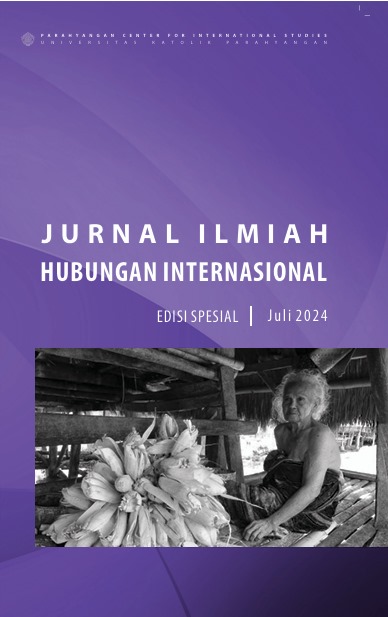Child Freedom as Ecofeminist Praxis: Navigating Gender, Reproductive Choice, and Climate Action
DOI:
https://doi.org/10.26593/jihi.v1i1.7810.105-117Abstract
This research explores the decision to have child freedom, namely the choice not to have children, as a form of ecofeminist praxis in supporting climate change action. By integrating ecofeminist theory, this study aims to analyze the individual impact of child freedom decisions on climate change and explore the gender dimensions that may be involved. Adopting a literature study approach, this research details how these decisions can be understood through an ecofeminist lens, linking issues of gender and reproductive choices to the ecological responsibility of individuals. Through an in-depth literature analysis, this research strengthens the argument that child freedom can be articulated as a positive action in reducing an individual's ecological footprint and considering
the social impact of gender in the context of climate change. This discussion highlights ecofeminist perspectives in the context of child freedom and explores how policy and society can support this choice as a concrete contribution to environmental sustainability. It is hoped that the results of this research can deepen our understanding of the relationship between gender issues, family decisions, and climate change action. The implications of these findings can provide a basis for the development of more inclusive policies and support concrete steps in overcoming the challenges of climate change.
Keywords: Child Freedom; Gender; Ecofeminism; Climate Change Action.
Downloads
Published
Issue
Section
License
Copyright (c) 2024 Jurnal Ilmiah Hubungan Internasional

This work is licensed under a Creative Commons Attribution 4.0 International License.
This journal uses Creative Commons license (CC BY). We allow readers to read, download, copy, distribute, print, search, or link to the full texts of its articles and allow readers to use them for any other lawful purpose. The author must be aware that the article copyrights will be fully transferred to Jurnal Ilmiah Hubungan Internasional only if the article is accepted to be published in the journal through signing of the Copyrights Transfer Agreement. Authors are allowed to resend their manuscript to another journal or intentionally withdraw the manuscript only if both parties (JIHI and Authors) have agreed on the related issue. Once the manuscript has been published, authors are allowed to use their published article under Jurnal Ilmiah Hubungan Internasional copyrights.





